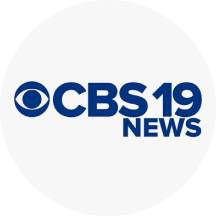The BBC is facing criticism for allegedly altering comments made by former President Donald Trump regarding the January 6, 2021, Capitol riot. A report indicated that the network's editing misrepresented Trump's words, suggesting he incited the violence. When concerns about the editing were raised, BBC executives reportedly dismissed them as standard practice and did not acknowledge any breach of journalistic standards.
In a memo from Michael Prescott, a former independent advisor to the BBC's editorial guidelines committee, he described the broadcaster as having "serious and systemic problems" with its reporting. The controversial edits appeared in an episode of the program "Panorama" titled "Trump: A Second Chance?" which aired in October 2024. The edited version of Trump's speech led viewers to believe he urged his supporters to fight aggressively, stating, "We’re gonna walk down to the Capitol and I’ll be with you and we fight. We fight like hell and if you don’t fight like hell, you’re not gonna have a country anymore."
However, the actual quote from Trump was, "We are gonna walk down to the Capitol and I’ll be with you. I know that everyone here will soon be marching over to the Capitol building to peacefully and patriotically make your voices heard." This significant difference in wording raised questions about the integrity of the broadcast.
Additionally, the program included a sequence that juxtaposed Trump's speech with audio of police warnings about "300 Proud Boys" approaching the Capitol, misleadingly implying a direct connection between Trump's words and the actions of the Proud Boys. Prescott noted that the footage of the Proud Boys was recorded an hour before Trump even began speaking.
Prescott's memo highlighted that the editing created a false narrative, stating, "Examining the charge that Trump had incited protesters to storm Capitol Hill, it turned out that Panorama had spliced together two clips from separate parts of his speech. This created the impression that Trump said something he did not and, in doing so, materially misled viewers." He pointed out that this misrepresentation was a key reason why Trump faced no federal charges for incitement.
Despite the serious nature of these allegations, BBC executives reportedly did not take action. Prescott expressed concern that the selective editing set a "very, very dangerous precedent" for the network. He noted that BBC chairman Samir Shah did not respond to his warnings.
This incident follows a previous apology from the BBC for a "serious breach" of broadcasting rules related to a documentary about Gaza, where it failed to disclose that a young subject was the son of a Hamas official. The BBC's handling of these issues has raised broader questions about media bias and the importance of maintaining audience trust in journalism.

 Canada News
Canada News

 Local News in Ontario
Local News in Ontario CTV News
CTV News  Cover Media
Cover Media Page Six
Page Six IMDb TV
IMDb TV CBS19 News Crime
CBS19 News Crime Associated Press US News
Associated Press US News